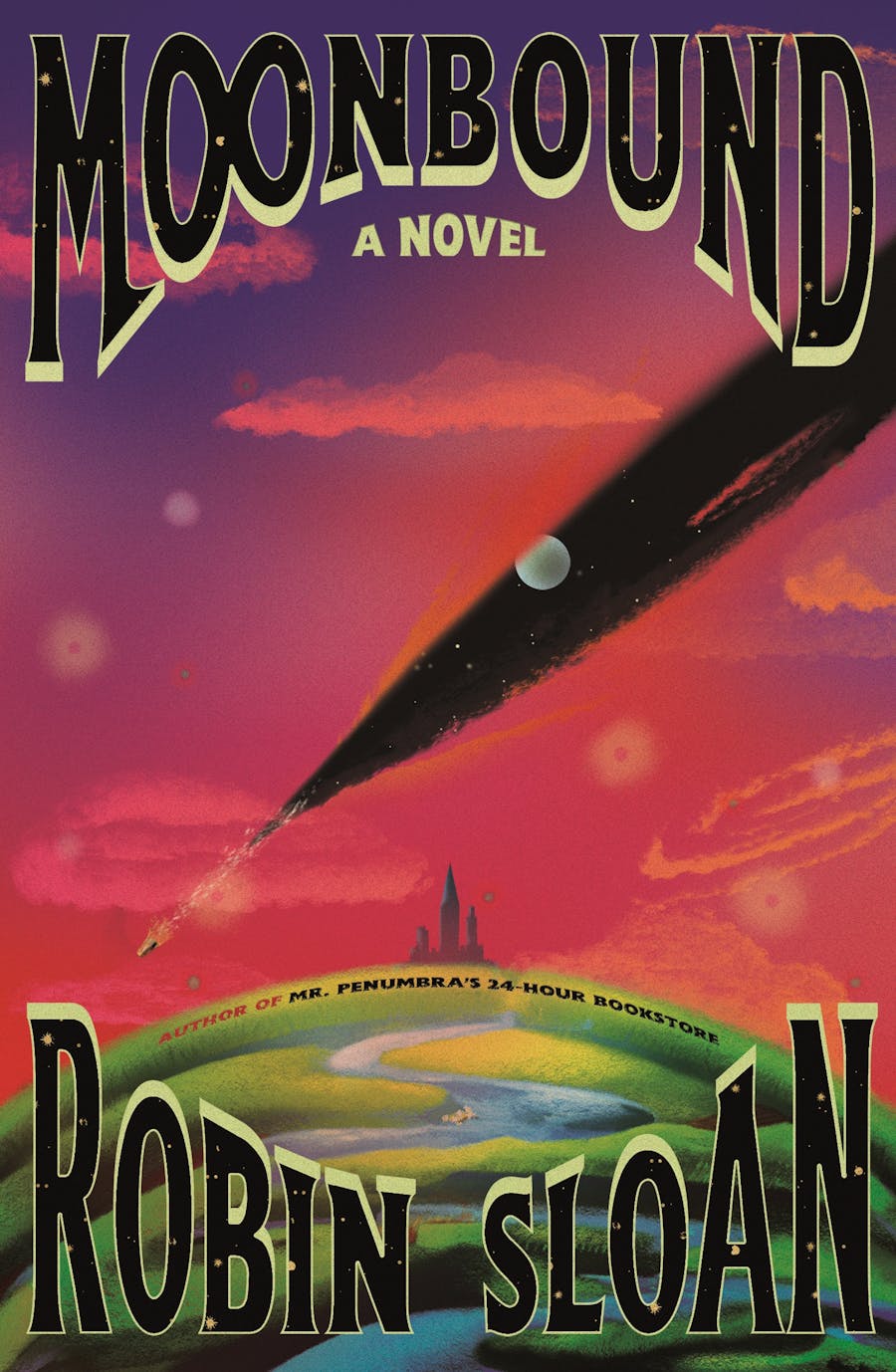A groundbreaking, definitive, once-in-a generation book about why couples fall in love, how they find themselves in inevitable crisis, and why it’s important—not just for them—how these crises are resolved.
COUPLES:
The Crisis of Intimacy and the Influence of Big History
by Dr. Orna Guralnik
Penguin Press, 2027
(via The Gernert Company)
 You may know Orna Guralnik from Showtime’s docuseries Couples Therapy, or from her excellent New York Times Magazine piece « I’m a Couples Therapist. Something New is Happening in Relationships ». Before Guralnik was a television star, however, she was a revered, influential academic—in fact, this was why the producers of the show approached her. Guralnik is part of a groundbreaking psychoanalytic movement which sees the self as nested in one’s community—collectives, as she terms it—as opposed to in conflict with civilization (as Freud thought), and understands that the unconscious cannot be set aside from the influence of history and politics (so goes much present-day thinking). As she has written in the New York Times, « psychoanalytic exploration is just as much about our deep ethical dilemmas regarding how to live with one another, and our environment, as it is about our early family dramas; my patients’ repressed experiences with the ghosts of their country’s history are as interesting as with their mothers. »
You may know Orna Guralnik from Showtime’s docuseries Couples Therapy, or from her excellent New York Times Magazine piece « I’m a Couples Therapist. Something New is Happening in Relationships ». Before Guralnik was a television star, however, she was a revered, influential academic—in fact, this was why the producers of the show approached her. Guralnik is part of a groundbreaking psychoanalytic movement which sees the self as nested in one’s community—collectives, as she terms it—as opposed to in conflict with civilization (as Freud thought), and understands that the unconscious cannot be set aside from the influence of history and politics (so goes much present-day thinking). As she has written in the New York Times, « psychoanalytic exploration is just as much about our deep ethical dilemmas regarding how to live with one another, and our environment, as it is about our early family dramas; my patients’ repressed experiences with the ghosts of their country’s history are as interesting as with their mothers. »
Following several couples along their dramatic developmental arcs, we learn that the person who is most important to us, who we depend on the most, is also the exact person who is destined to fail and misunderstand us. Crisis is set into motion when differences become unbearable; couples find themselves caught up in maddening, repetitive cycles. They must then move from black-and-white thinking and blame to an understanding of the unconscious forces that guide them. The knowledge that these unconscious forces can be generational—a mother’s immigration trauma, say, or a father’s childhood poverty—enables us all to better understand personal conflicts in the context of shared history. Analysis that leads to the understanding of difference and the acceptance of multiple perspectives can heal the relationship with one’s partner—and also those in the world at large. The roots of Big History touch us all.
Dr. Orna Guralnik is a Clinical Psychologist and Psychoanalyst practicing in New York City. She is on faculty at NYU Postdoctoral Institute for Psychoanalysis and at the National Institute for the Psychotherapies in New York City, where she lectures and publishes on the topics of couples treatment and culture, dissociation and depersonalization, as well as culture and psychoanalysis. She is co-founder of the Center for the Study of Dissociation and Depersonalization at the Mount Sinai Medical School. Dr. Guralnik is a graduate of the NYU Postdoctoral Program in Psychoanalysis. She has completed the filming of several seasons of Showtime’s documentary series Couples Therapy.

 For thousands of years, people have argued about whether humanity is selfish or generous, cruel or kind. But recently, our answers have changed. In 1972, half of Americans agreed that most people can be trusted; by 2018, that figure had fallen to 30%. Different generations, genders, religions, and political parties can’t seem to agree on anything, except that they all think human virtue is evaporating.
For thousands of years, people have argued about whether humanity is selfish or generous, cruel or kind. But recently, our answers have changed. In 1972, half of Americans agreed that most people can be trusted; by 2018, that figure had fallen to 30%. Different generations, genders, religions, and political parties can’t seem to agree on anything, except that they all think human virtue is evaporating. In September of 2019, Luis Alberto Quiñonez—known as Sito— was shot to death as he sat in his car in the Mission District of San Francisco. He was nineteen. His killer, Julius Williams, was seventeen. It was the second time the teens had encountered one another. The first, five years before, also ended in tragedy, when Julius watched as his brother was stabbed to death by an acquaintance of Sito’s. The two murders merited a few local news stories, and then the rest of the world moved on. But for the families of the slain teenagers, it was impossible to move on. And for Laurence Ralph, the stepfather of Sito’s half-brother who had dedicated much of his academic career to studying gang-affiliated youth, Sito’s murder forced him to revisit a subject of scholarly inquiry in a deeply personal way. Written from Ralph’s perspective as both a person enmeshed in Sito’s family and expert on the entanglement of class and violence, SITO is an intimate story with an message about the lived experience of urban danger, and about anger, fear, grief, vengeance, and ultimately grace.
In September of 2019, Luis Alberto Quiñonez—known as Sito— was shot to death as he sat in his car in the Mission District of San Francisco. He was nineteen. His killer, Julius Williams, was seventeen. It was the second time the teens had encountered one another. The first, five years before, also ended in tragedy, when Julius watched as his brother was stabbed to death by an acquaintance of Sito’s. The two murders merited a few local news stories, and then the rest of the world moved on. But for the families of the slain teenagers, it was impossible to move on. And for Laurence Ralph, the stepfather of Sito’s half-brother who had dedicated much of his academic career to studying gang-affiliated youth, Sito’s murder forced him to revisit a subject of scholarly inquiry in a deeply personal way. Written from Ralph’s perspective as both a person enmeshed in Sito’s family and expert on the entanglement of class and violence, SITO is an intimate story with an message about the lived experience of urban danger, and about anger, fear, grief, vengeance, and ultimately grace. For twenty years, Sciona has devoted every waking moment to the study of magic, fueled by a mad desire to achieve the impossible: to be the first woman ever admitted to the High Magistry at the University of Magics and Industry. When Sciona finally achieves her ambition and becomes a Highmage, she finds that her challenges have just begun. Her new colleagues are determined to make her feel unwelcome, and instead of a qualified lab assistant they give her a janitor. What neither Sciona nor her peers realize is that her taciturn assistant was not always a janitor. Ten years ago he was a nomadic hunter who lost his family on their perilous journey from the wild plains to the city. But now he sees the opportunity to finally understand the forces that decimated his tribe, drove him from his homeland, and keep the privileged in power. At first, mage and outsider have a fractious relationship. But working together they uncover an ancient secret that could change the course of magic forever—if it doesn’t get them killed first.
For twenty years, Sciona has devoted every waking moment to the study of magic, fueled by a mad desire to achieve the impossible: to be the first woman ever admitted to the High Magistry at the University of Magics and Industry. When Sciona finally achieves her ambition and becomes a Highmage, she finds that her challenges have just begun. Her new colleagues are determined to make her feel unwelcome, and instead of a qualified lab assistant they give her a janitor. What neither Sciona nor her peers realize is that her taciturn assistant was not always a janitor. Ten years ago he was a nomadic hunter who lost his family on their perilous journey from the wild plains to the city. But now he sees the opportunity to finally understand the forces that decimated his tribe, drove him from his homeland, and keep the privileged in power. At first, mage and outsider have a fractious relationship. But working together they uncover an ancient secret that could change the course of magic forever—if it doesn’t get them killed first. In MOONBOUND, Robin Sloan has written a novel with the full scope and ambitious imagination of the very books that lit the engines of Mr. Penumbra’s 24-Hour Bookstore: an epic quest as only Sloan could conceive it, mixing science fiction, fantasy, good old-fashioned literary storytelling, and unrivaled enthusiasm for what’s next.
In MOONBOUND, Robin Sloan has written a novel with the full scope and ambitious imagination of the very books that lit the engines of Mr. Penumbra’s 24-Hour Bookstore: an epic quest as only Sloan could conceive it, mixing science fiction, fantasy, good old-fashioned literary storytelling, and unrivaled enthusiasm for what’s next.